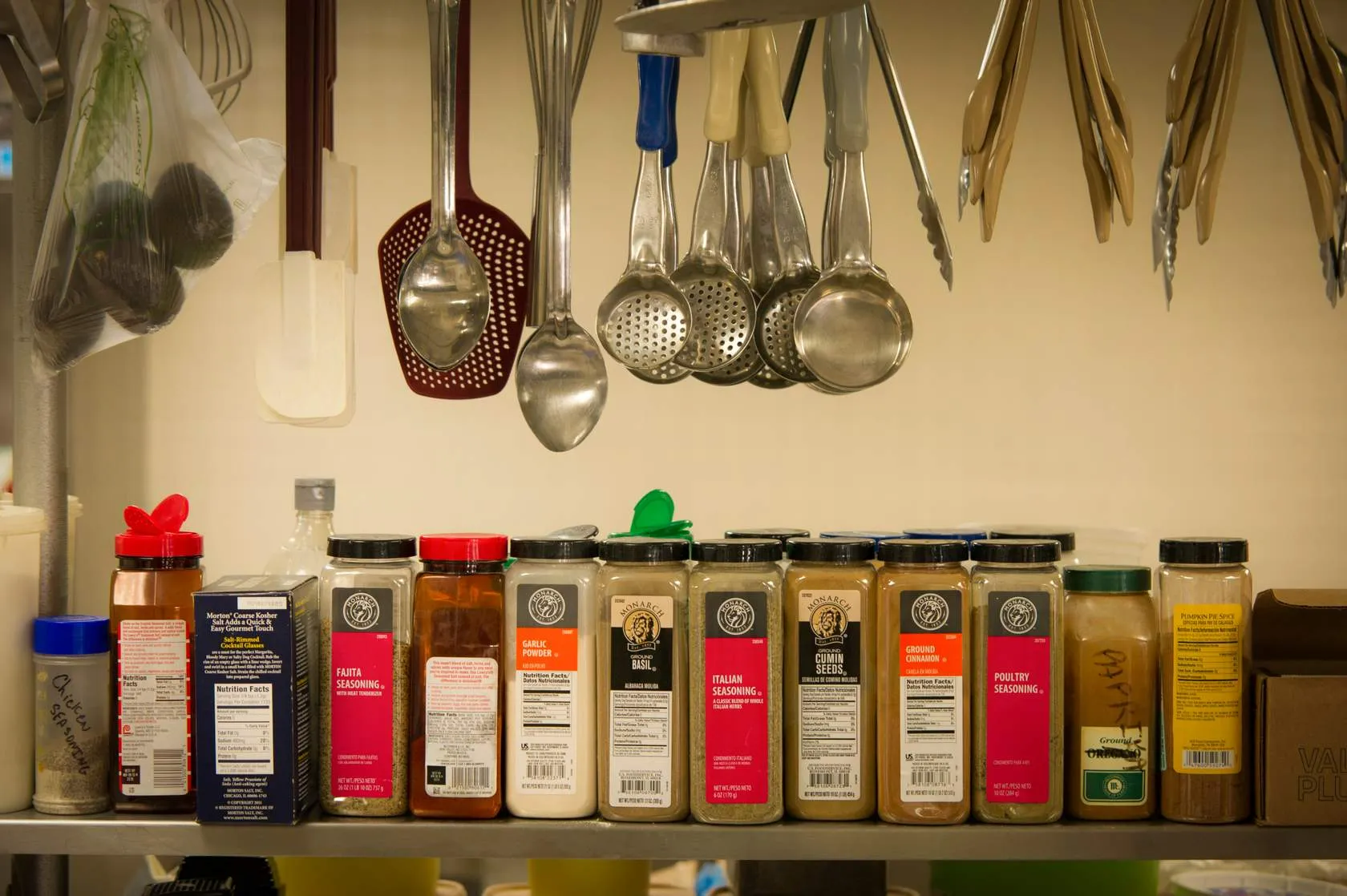eKitchen
Our eKitchen

Welcome to the eKitchen!
The eKitchen is an online learning space designed for child nutrition professionals working in schools and child care settings. Each course offers practical, flexible training developed by chefs and child nutrition experts who understand the day-to-day challenges of preparing healthy meals for kids. Whether you’re training new staff or building your own skills, the eKitchen provides real-world learning you can apply in your kitchen right away.
Click on the classes below to register:
Class 1: Foundational Math Skills
General course encompassing math concepts such as addition, subtraction, multiplication, and division of whole numbers, fractions, and decimals that can be applied to culinary situations.
Class Length: 45 minutes
Suggested Prerequisite: None
Intended Audience: School Nutrition Director/Manager, School Nutrition Staff, Child Care Center
Objectives:
- Demonstrate foundational math operations such as addition, subtraction, multiplication, and division using whole numbers, fractions, and decimals
Professional Standards:
- Operations- Food Production 2100
Class 2: Standardized Recipes and Units of Measure
General course encompassing culinary math skills, standard units of measure, measurement tools, and the importance of standardized recipes.
Class Length: 1 hour
Suggested Prerequisite: Foundational Math Skills
Intended Audience: School Nutrition Director/Manager, School Nutrition Staff, Child Care Center
Objectives:
- Select the appropriate measurement tool based on the ingredient you’re measuring.
- Explain the benefits of using standardized recipes.
Professional Standards:
- Operations- Food Production 2100
Class 3: Scaling Standardized Recipes
General course encompassing culinary math skills and standard units of measure to increase and decrease the yield of standardized recipes.
Class Length: 1 hour
Suggested Prerequisite: Foundational Math Skills and Standardized Recipes and Units of Measure
Intended Audience: School Nutrition Director/Manager, School Nutrition Staff, Child Care Center
Objectives:
- Adjust a recipe to increase or decrease the yield. Explain the benefits of using standardized recipes.
Professional Standards:
- Operations- Food Production 2100
Class 4: Essential Knife Skills for Child Nutrition Professionals
This course is designed for Child Nutrition Professionals looking to enhance their knife skills and ensure kitchen safety. By the end of the course, participants will be able to discuss essential knife care and safety practices, match the correct knife to various foods, and explain the importance of using sharp knives. Additionally, learners will identify and learn common knife cuts such as dice, julienne, chiffonade, and mince.
Class Length: 1 hour
Suggested Prerequisite: None
Intended Audience: School Nutrition Director/Manager, School Nutrition Staff, Child Care Center, Family Child Care Home Provider
Objectives:
- Discuss knife care and safety practices.
- Match the correct knife to the food you’re going to cut.
- Explain the importance of using sharp knives.
- Identify common knife cuts including dice, julienne, chiffonade, and mince.
Professional Standards:
- Operations- Food Production 2100
Class 5: Food Safety 101
Overview of introductory food safety practices including personal hygiene, food storage, temperature control guidelines, and safe food handling practices. This class is great for new hire onboarding or review of best food safety practices.
Class Length: 1 hour
Suggested Prerequisite: None
Intended Audience: School Nutrition Director/Manager, School Nutrition Staff, Child Care Center
Objectives:
- Recognize the importance of keeping food safe.
- Demonstrate proper personal hygiene procedures.
- Use the appropriate thermometer for the food being checked.
- Identify how to keep food safe using time and temperature rules.
- Explain proper food safety techniques for storing food.
Professional Standards:
- Operations- Serving Food 2200
- Operations- Receiving and Storage 2500
- Operations- Food Safety and HACCP 2600
- Administration- Human Resources and Staff Training 3400
Class 6: Creating a Positive Cafeteria Experience
The way food is arranged and presented can have a big impact on what students choose to eat. In this training, child nutrition professionals will be introduced to basic behavioral economics concepts and learn how to apply them through the CHOICE Framework. This set of simple, evidence-based strategies helps create a cafeteria environment where healthy choices are easier for students to make. Participants will explore practical ways to improve food placement, variety, signage, and student engagement using tools that are low-cost and realistic to implement in both school and childcare settings.
Class Length: 45 minutes
Suggested Prerequisite: None
Intended Audience: School Nutrition Director/Manager, School Nutrition Staff
Objectives:
- Explain the basic principles of behavioral economics
- Recognize how environmental cues influence student food choices.
- Implement behavioral economic strategies
Professional Standards:
- Operations- Serving Food 2200
- Administration- Communications and Marketing 4100
Class 7: Foundations of Flavor
-
List ingredients that add flavor without adding sodium, fat, or sugar.
-
Describe ways to add flavor during the preparation process.
-
Discuss how to conduct a taste test with students.
-
Operations- Food Production 2100
-
Operations- Serving Food 2200
Class 8: Menu Planning for Child Nutrition
-
Explain the function of strategic and operational menu planning.
-
Apply tools such as cycle menus, MEP, prep calendars, and forecasting models.
-
Incorporate strategies for taste testing, food presentation, and salad bars.
-
Improve efficiency and meal appeal while maintaining compliance.
-
Nutrition- Menu Planning 1100
-
Operations- Serving Food 2200
-
Administration- Communication and Marketing 410
